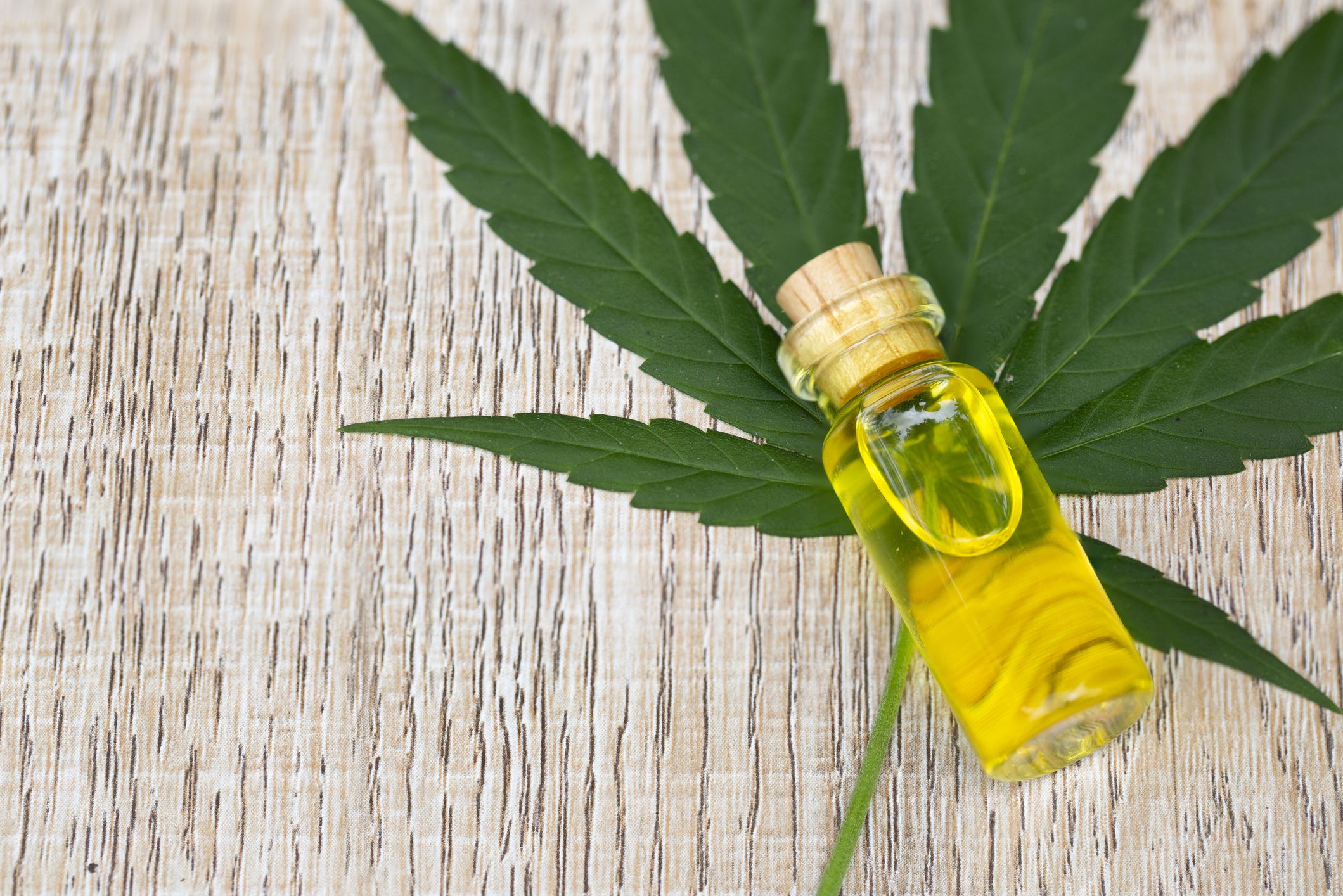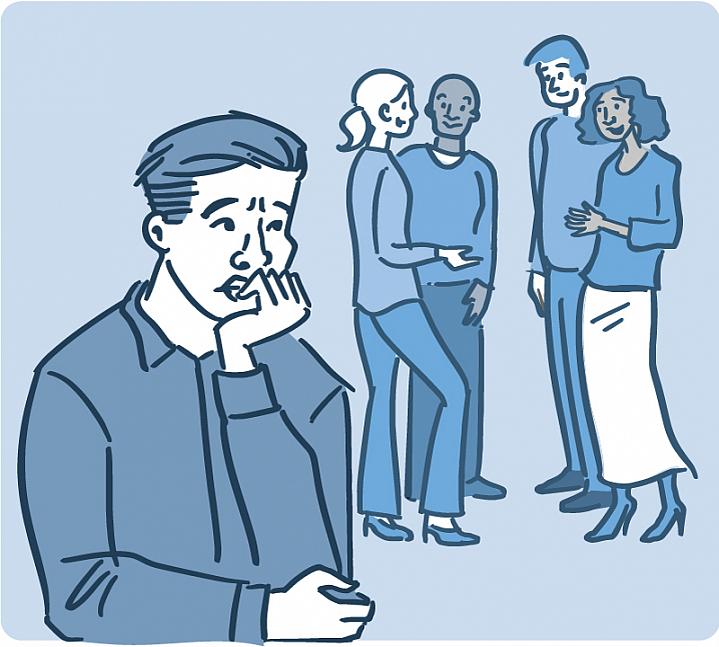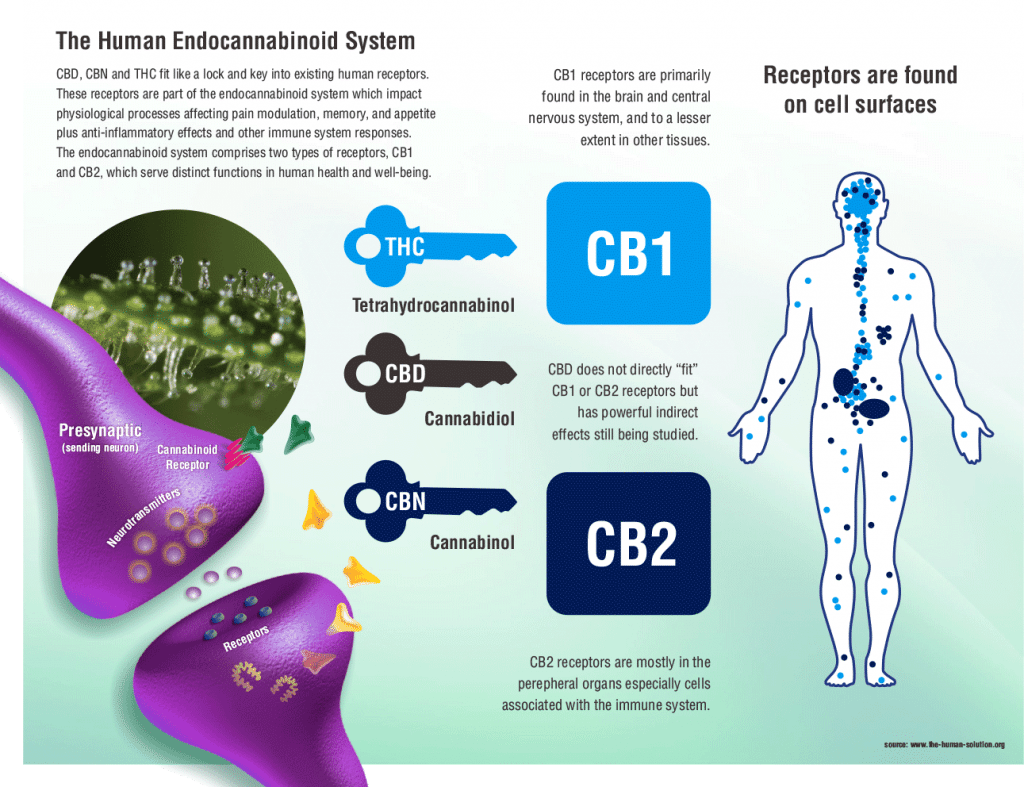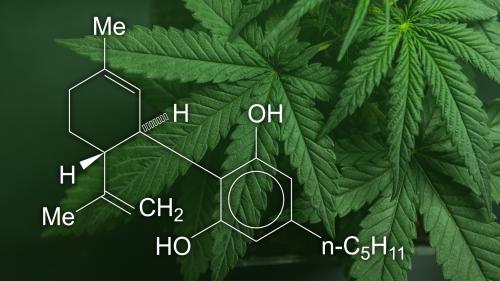In today's fast-paced world, anxiety has become an all too familiar companion for many. The relentless demands of modern life, coupled with personal challenges, can leave us feeling overwhelmed and on edge. As we search for ways to find respite from this constant mental turbulence, one intriguing solution has emerged from the world of cannabis: Cannabidiol, or CBD.
CBD is garnering attention not only for its potential to provide anxiety relief but also for the science that underpins its calming effects. If you've been curious about CBD and its role in anxiety management, you're in the right place. In this comprehensive guide, we'll delve deep into the world of CBD, dissecting the science behind its soothing properties.
But before we embark on this journey, let's address a fundamental question: What is anxiety, and why has it become such a prevalent concern in today's society?
Join us as we explore the fascinating realm of CBD, where science meets serenity, offering a ray of hope to those seeking a more natural path to peace of mind.

NetDoctor
Understanding Anxiety
Anxiety is a universal human experience. It's that flutter of unease before a big presentation, the racing heartbeat during a turbulent flight, or the worry that accompanies life's uncertainties. However, anxiety becomes a concern when it transcends these momentary reactions and manifests as a persistent, overwhelming force in our lives.
Defining Anxiety
Anxiety, in its essence, is our body's natural response to stress. It's the alarm system that prepares us to face a threat, whether real or perceived. When functioning properly, this response can be life-saving, mobilizing our resources to deal with danger. But when anxiety spirals out of control, it can feel like a relentless, irrational fear that paralyzes us.
The Impact of Anxiety
The impact of anxiety can be profound. It affects not only our mental state but also our physical well-being. Chronic anxiety can lead to a range of health issues, including insomnia, digestive problems, and even cardiovascular conditions. It can strain relationships, hinder personal growth, and diminish overall quality of life.
Types of Anxiety Disorders
Anxiety is a complex and multifaceted phenomenon, and it comes in various forms. Some of the most common anxiety disorders include:
Generalized Anxiety Disorder (GAD): Characterized by excessive worry and fear about everyday situations, often with no apparent reason.
Panic Disorder: Involves recurring panic attacks, which are sudden and intense episodes of fear that may be accompanied by physical symptoms like rapid heartbeat and sweating.
Social Anxiety Disorder: In this condition, individuals experience extreme discomfort and self-consciousness in social situations.
Post-Traumatic Stress Disorder (PTSD): Develops in response to a traumatic event, causing intrusive memories, nightmares, and heightened arousal.
Obsessive-Compulsive Disorder (OCD): Marked by recurrent, unwanted thoughts (obsessions) and repetitive behaviors (compulsions) aimed at reducing anxiety.
Understanding these various forms of anxiety is crucial because it highlights the diversity of experiences people face. It also underscores the need for tailored approaches to anxiety management.
In the quest to find effective anxiety relief, many individuals have turned to CBD as a potential solution. But what exactly is CBD, and how does it fit into the anxiety puzzle?

NIH News in Health
Traditional Anxiety Treatments
When anxiety begins to dominate one's life, seeking relief becomes a top priority. Traditionally, anxiety disorders have been treated through a range of therapeutic approaches and medications. Let's take a closer look at some of the conventional methods and their limitations.
Pharmaceutical Options
Anti-Anxiety Medications: These medications, including benzodiazepines like Xanax and Valium, are designed to provide rapid relief from anxiety symptoms. They work by enhancing the effects of the neurotransmitter GABA, which has a calming effect on the brain.
Limitations: While effective in the short term, they can be habit-forming and may lead to dependence. Prolonged use can also result in tolerance, requiring higher doses for the same effect.
Antidepressants: Certain antidepressant medications, such as selective serotonin reuptake inhibitors (SSRIs) and serotonin-norepinephrine reuptake inhibitors (SNRIs), are commonly prescribed for various anxiety disorders.
Limitations: Antidepressants often take several weeks to become effective, and their side effects can be challenging. Not everyone responds well to these medications.
Beta-Blockers: Beta-blockers like Propranolol are used to manage physical symptoms of anxiety, such as rapid heartbeat and trembling. They work by blocking the effects of adrenaline.
Limitations: Beta-blockers primarily address physical symptoms and do not target the root causes of anxiety.Limitations and Potential Side Effects
While these pharmaceutical options can be beneficial for many individuals, they come with notable limitations and potential side effects. These include:
Dependency and Tolerance: Benzodiazepines can lead to dependency and require careful monitoring to prevent abuse.Side Effects: Antidepressants may cause a range of side effects, including nausea, sexual dysfunction, and weight gain.
Ineffectiveness: Not everyone responds to these medications, and finding the right one can involve a process of trial and error.
Short-Term Relief: Many traditional treatments offer relief in the short term but may not address the underlying causes of anxiety.
Withdrawal Symptoms: Abruptly discontinuing some medications can lead to withdrawal symptoms, including increased anxiety.
It's clear that while pharmaceutical treatments have their place in anxiety management, there is room for alternative approaches that offer a more natural, holistic perspective. This is where CBD enters the picture, providing a potentially promising option that taps into the body's regulatory systems.

Talkspace
Enter CBD: What is it?
Cannabidiol, better known as CBD, has emerged as a shining star in the world of natural wellness and anxiety management. But what exactly is CBD, and how does it differ from its more infamous cousin, THC?
Explanation of CBD
CBD is one of over 100 cannabinoids found in the cannabis plant. Unlike THC (tetrahydrocannabinol), the cannabinoid responsible for the "high" associated with cannabis, CBD is non-intoxicating. In other words, it won't leave you feeling euphoric or impaired.
CBD is typically extracted from hemp, a variety of cannabis that contains minimal THC, making it legal in many parts of the world. Its non-psychoactive nature and potential therapeutic properties have made it a subject of extensive scientific research and a popular choice for those seeking natural remedies.
How it Differs from THC
While CBD and THC originate from the same plant, they have markedly different effects on the human body due to their distinct interactions with the endocannabinoid system.
Psychoactivity: As mentioned earlier, THC produces a psychoactive effect, altering perception and cognition. In contrast, CBD does not have this psychoactive impact.Anxiety and Paranoia: THC can sometimes trigger anxiety and paranoia, especially in high doses or for individuals prone to anxiety. CBD, on the other hand, may have anxiolytic (anxiety-reducing) effects, as we'll explore in more detail later.
Legal Status: CBD derived from hemp with less than 0.3% THC is federally legal in many countries, whereas THC is often subject to strict legal regulations.
Medical Applications: Both CBD and THC have demonstrated potential medical benefits, but they are typically used for different purposes. CBD is commonly explored for its therapeutic properties in managing conditions like anxiety, pain, and epilepsy, while THC may be prescribed for pain management and appetite stimulation.
Now that we have a basic understanding of what CBD is and how it differs from THC, the next crucial question is: How does CBD interact with our bodies to potentially provide anxiety relief?
CBD and the Endocannabinoid System
To comprehend how CBD exerts its potential anxiety-relieving effects, we must acquaint ourselves with a remarkable physiological system—the endocannabinoid system (ECS). This intricate network of receptors, neurotransmitters, and enzymes plays a pivotal role in maintaining balance within our bodies, a state known as homeostasis.Introduction to the Endocannabinoid System
The endocannabinoid system was discovered relatively recently, and its full scope is still being unraveled by scientists. It comprises three main components:Endocannabinoids: These are naturally occurring compounds within our bodies that are similar in structure to cannabinoids found in cannabis. Anandamide and 2-arachidonoylglycerol (2-AG) are two well-known endocannabinoids.
Receptors: The ECS has two primary types of receptors: CB1 receptors, predominantly found in the central nervous system, and CB2 receptors, primarily located in the peripheral nervous system and immune cells. These receptors serve as locks to which endocannabinoids and phytocannabinoids (like CBD) can bind.
Enzymes: Enzymes are responsible for breaking down endocannabinoids once they've fulfilled their roles. Two key enzymes are FAAH (fatty acid amide hydrolase) and MAGL (monoacylglycerol lipase).
How CBD Interacts with the ECS
CBD's fascinating interaction with the endocannabinoid system is at the core of its potential anxiety-relieving properties. While the precise mechanisms are still under investigation, here's what we know so far:Indirect Activation: CBD doesn't directly bind to CB1 or CB2 receptors like THC does. Instead, it influences the ECS indirectly. It may enhance the effects of endocannabinoids by inhibiting enzymes like FAAH and MAGL, which break them down. This leads to an increase in the levels of naturally occurring endocannabinoids like anandamide.
Modulation of Neurotransmitters: CBD also affects various neurotransmitters in the brain, including serotonin. Serotonin plays a crucial role in regulating mood and anxiety, and CBD's impact on it may contribute to its anxiolytic (anxiety-reducing) effects.
Anti-Inflammatory and Neuroprotective Properties: CBD has been shown to have anti-inflammatory and neuroprotective properties, which may be beneficial in reducing anxiety, especially in cases where inflammation or neurological factors contribute to the disorder.
Mechanisms of Action for Anxiety Relief
Boosting Endocannabinoids: CBD's indirect interaction with the endocannabinoid system appears to be a key player in its anxiety-relieving potential. By inhibiting enzymes that break down endocannabinoids like anandamide, CBD may increase the availability of these natural mood regulators in the brain, contributing to a sense of calm.Neurotransmitter Modulation: Anxiety is often associated with imbalances in neurotransmitters like serotonin, which plays a pivotal role in regulating mood. Some studies suggest that CBD may influence serotonin receptors in a way that promotes a more balanced and positive emotional state.
GABA Enhancement: Gamma-aminobutyric acid (GABA) is an inhibitory neurotransmitter that helps calm the nervous system. CBD appears to enhance GABA signaling, potentially reducing anxiety by promoting relaxation.
Neurogenesis: In some animal studies, CBD has been linked to the generation of new neurons in the hippocampus, a brain region associated with emotion regulation. This neurogenesis may contribute to CBD's long-term anxiety-reducing effects.
Research Studies Supporting CBD's Efficacy
Clinical Trials: Several clinical trials have explored the use of CBD for anxiety disorders.Animal Studies: Preclinical research involving animal models has provided further insights into CBD's anxiety-reducing potential. Studies on rodents have shown that CBD can reduce stress-induced behaviors and physiological responses.
Neuroimaging: Brain imaging studies have revealed that CBD may alter brain activity in regions associated with anxiety, providing a neurobiological basis for its effects.
Anxiety-Related Disorders: Research also suggests that CBD may be beneficial for other anxiety-related disorders, including post-traumatic stress disorder (PTSD) and obsessive-compulsive disorder (OCD).

CBD.market
Safety of CBD
The safety of CBD is a topic of paramount importance, especially when considering it as an option for anxiety relief. Let's address common concerns and questions regarding the safety profile of CBD.Addressing Common Concerns
Is CBD Psychoactive? No, CBD is not psychoactive. It won't induce a "high" or altered state of consciousness like THC.Can CBD Get You Addicted? CBD is not considered addictive. Unlike THC-containing products, CBD does not lead to physical dependence or withdrawal symptoms when discontinued.
Does CBD Have Side Effects? While generally well-tolerated, CBD may cause side effects in some individuals. Common side effects include dry mouth, diarrhea, changes in appetite, and fatigue. These effects are typically mild and temporary.
Drug Interactions: CBD has the potential to interact with certain medications. It can inhibit enzymes in the liver responsible for metabolizing various drugs, potentially leading to altered drug levels in the bloodstream. It's crucial to consult with a healthcare professional if you're taking medications and considering CBD.
Quality and Purity: The safety of CBD products depends on their quality and purity. To ensure safety, choose reputable brands that provide third-party lab testing results to verify the contents of their products.
Potential Side Effects and Individual Variability
While many people experience no adverse effects when using CBD, individual responses can vary. Factors like dosage, product quality, and an individual's unique biology can influence how CBD affects them. It's advisable to start with a low dose and gradually increase it while closely monitoring how your body responds. It's also essential to consult with a healthcare provider, especially if you have pre-existing medical conditions or are taking other medications. They can provide guidance tailored to your specific situation. In summary, while CBD has a generally favorable safety profile, it's not entirely risk-free, and individual factors should be considered. By approaching CBD use with caution and informed decision-making, you can mitigate potential risks and maximize the potential benefits in your journey to anxiety relief.
FDA
Finding the Right Dosage
Determining the appropriate CBD dosage for anxiety relief is a crucial step in your journey to wellness. Unlike one-size-fits-all pharmaceuticals, CBD's effectiveness often hinges on personalized dosing. Here's a comprehensive guide to help you find your optimal CBD dosage.The Importance of Personalized Dosing
CBD affects individuals differently, and there's no universal dosage that guarantees anxiety relief for everyone. Several factors influence the right dosage for you, including:Tips for Determining the Right CBD Dosage
Start Low and Go Slow: It's wise to begin with a low CBD dose, typically around 10-20 milligrams per day. Monitor your response over several days or weeks and adjust the dosage gradually as needed.Keep a Journal: Maintain a journal to track your CBD usage, dosage, and how you feel each day. This will help you identify trends and make informed adjustments.
Consult a Healthcare Professional: If you're uncertain about the right dosage or have concerns about interactions with other medications, consult a healthcare provider experienced in CBD use.
Consider Product Type: The type of CBD product you choose can affect dosing. Sublingual tinctures, for example, are absorbed more quickly than edibles, so dosages may differ.
Be Patient: Finding the right dosage may require some patience and experimentation. Be prepared for a bit of trial and error to discover what works best for you.
Understand Milligrams and Concentrations: Pay attention to the concentration of CBD in the product. For example, if you have a 30ml tincture with 300mg of CBD, each 1ml dropper contains approximately 10mg of CBD.
Consistency is Key: Once you find your optimal dosage, consistency in your CBD routine is important to maintain the desired effects.
CBD Products for Anxiety
Choosing the right CBD product is a pivotal step in your journey toward anxiety relief. The market offers a diverse array of CBD-infused products, each with its unique characteristics. Here, we'll explore the most common CBD product types and help you make an informed decision.CBD Oils and Tinctures: These are liquid extracts of CBD typically administered sublingually (under the tongue) for rapid absorption. They come in various concentrations, making it easy to adjust your dosage.
CBD Capsules: Capsules offer a convenient and precise way to take CBD. They provide consistent dosages and are suitable for those who prefer a more traditional approach.
CBD Edibles: CBD-infused edibles include gummies, chocolates, and beverages. They are a tasty option, but absorption can be slower because the CBD must pass through the digestive system.
Topical CBD Products: Creams, balms, and lotions infused with CBD are designed for localized relief. They can be applied directly to areas of discomfort but do not provide systemic effects.
CBD Vapes: Vaporized CBD enters the bloodstream quickly, offering rapid relief. However, concerns about lung health and product quality have led some to be cautious about vaping.
CBD Isolate: This pure form of CBD contains no other cannabinoids or compounds from the cannabis plant. It's ideal for those who want to avoid even trace amounts of THC.
Full-Spectrum CBD: Full-spectrum products contain a range of cannabinoids, including trace amounts of THC (usually below 0.3%). This combination is believed to enhance the "entourage effect," where cannabinoids work synergistically for greater therapeutic potential.
Broad-Spectrum CBD: Similar to full-spectrum but with THC removed entirely. This option provides the benefits of multiple cannabinoids without the psychoactive effects of THC.
Choosing the Right Product for Anxiety
The best CBD product for anxiety depends on your preferences, needs, and the nature of your anxiety. Here are some considerations to help you choose:Speed of Relief: If you require rapid anxiety relief, consider sublingual tinctures or vaping. For long-lasting effects, capsules or edibles may be more suitable.
Dosage Control: If precise dosing is crucial, opt for capsules or tinctures, as they offer more control over the amount of CBD you take.
Taste and Convenience: Edibles and capsules are convenient and come in various flavors. If you dislike the natural taste of CBD, these options may be preferable.
Localized Relief: If you experience physical symptoms of anxiety, such as muscle tension, topical CBD products may be beneficial.
THC Sensitivity: If you're concerned about THC or live in an area where THC is not legal, consider CBD isolate or broad-spectrum products.
Holistic Approach: For a comprehensive approach to anxiety management, full-spectrum products may offer additional benefits through the entourage effect.
Conclusion
In the quest for anxiety relief, CBD has emerged as a fascinating and promising option. Through our journey in this guide, we've explored the intricate science behind CBD's potential to bring calmness to anxious minds. From its indirect interaction with the endocannabinoid system to its modulation of neurotransmitters, CBD offers a holistic approach to managing anxiety that's capturing the attention of researchers and individuals alike.
While CBD shows remarkable potential, it's essential to approach its use with mindfulness and individualization. Finding the right CBD product, dosage, and routine can take time, but the journey toward anxiety relief is often as valuable as the destination. As we've seen, CBD is generally well-tolerated, with few side effects. However, it's crucial to consult with a healthcare professional, especially if you have pre-existing medical conditions or are taking other medications. In the world of anxiety management, CBD is not a standalone solution but a versatile tool that can complement other wellness practices and therapeutic approaches.
Whether you're seeking a natural alternative to traditional treatments or an additional layer of support, CBD holds the promise of promoting a sense of peace and balance. As you consider incorporating CBD into your anxiety management plan, keep in mind that your journey is unique. What works for one person may differ for another. Stay open to adaptation, consult with professionals when needed, and prioritize your well-being. Together, we can explore the potential of CBD and find the path to a calmer, more balanced life. And now, as you embark on your journey towards anxiety relief, why not explore our collection of cannabis grow books?
Whether you're a seasoned cultivator or a curious beginner, these resources can help you unlock the full potential of the cannabis plant in all its forms. Remember, anxiety may be a part of your story, but it doesn't define your journey. With CBD and the right support, you have the power to reclaim your sense of calm and well-being.
